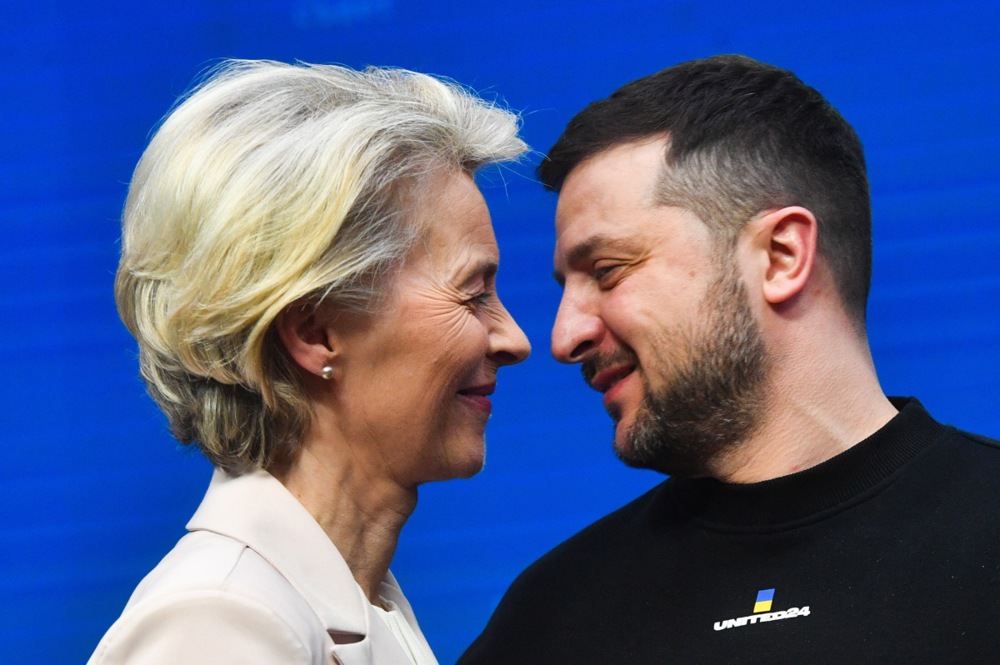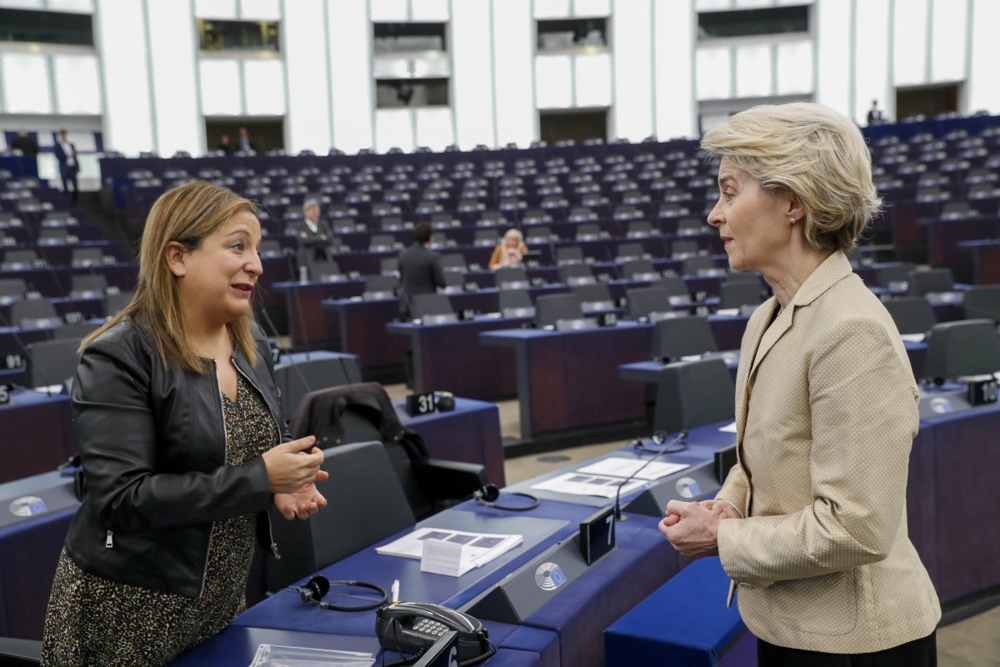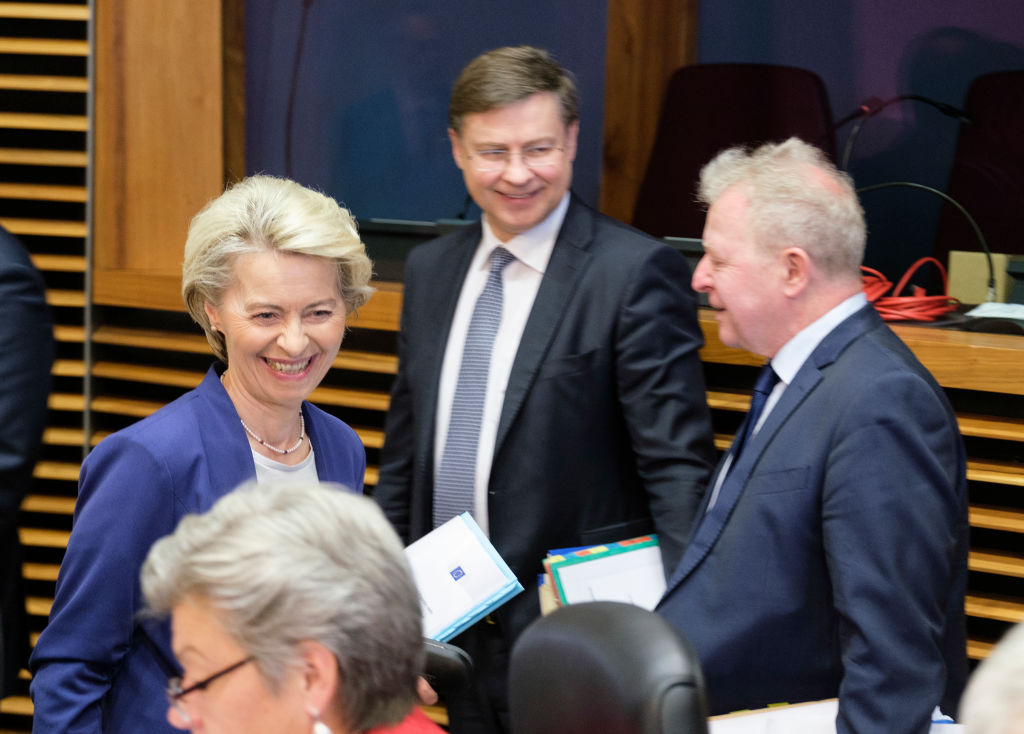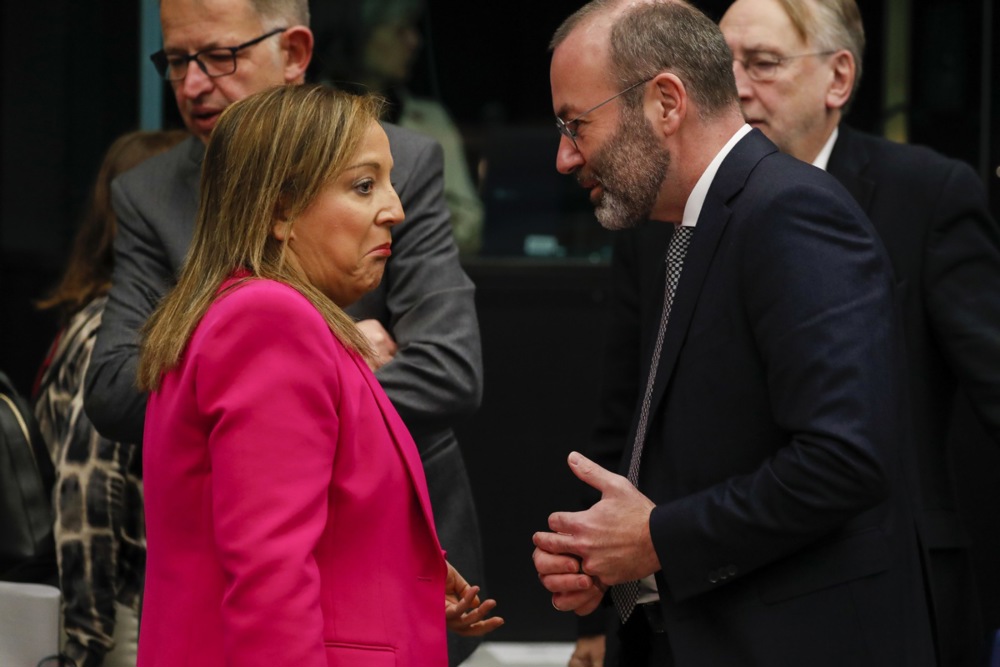Poland’s ruling Conservative (PiS) party has signalled that a deal involving enlargement of the European Union in exchange for treaty changes that expand the powers of EU institutions is not acceptable.
The PiS has reacted negatively to European Commission President Ursula von der Leyen’s State of the Union address on September 13, saying there was no prospect of Poland supporting any change in EU treaties that would increase the areas of competence and powers of the bloc and its organisations.
In her address to the European Parliament, von der Leyen spoke about “deepening integration” and enlargement of the bloc to ensure “geopolitical weight and the capacity to act”.
Von der Leyen’s linking of any enlargement to treaty alterations and increased powers for EU institutions was rejected by Polish Government spokesman Piotr Mueller. Responding to her speech he told Polish press agency PAP: “Our government will not agree to any changes in EU treaties that would take away further powers from the Member States and hand them over to unelected Brussels bureaucrats.”
During the debate in the European Parliament after von der Leyen’s speech, PiS MEP Ryszard Legutko responded to her address on behalf of the European Conservative Reformers (ECR) Group. He accused the EC President of seeking to create an “oligarchy” in the EU that would marginalise Member States.
He also accused her of trying to intervene in elections in both Italy and Poland, despite “having no legal instruments to interfere in the democratic process in the Member States” and called on the EU to “cease playing games with the legal foundations of the community”.
Jacek Saryusz-Wolski, a PiS MEP who was a member of the Parliament’s working group on the EU’s institutional reforms, told Polish public radio that the working group’s report to the Parliament was proposing “radical centralisation”, turning the EU into a “superstate with little or no democratic control at the expense of the Member States”.
He described the report as “comprehensive” and taking the EU in the “German federal direction”. He noted that the European Parliament is to vote on it on October 12, just three days before Poland’s general election.
The findings of the group’s report, which von der Leyen appeared to be backing in her speech, include the removal of the principle of unanimity in decision-making in 65 policy areas, which would constitute a “massive transfer of power from the Member States to the EU”, according to Saryusz-Wolski.
The group’s report states these areas of competence are to include foreign policy, security and defence, borders, environment, climate negotiations, forestry, public health, trans-border transport infrastructure, industry and education, he said.
According to Saryusz-Wolski, the ECR has refused to sign the report and has produced its own document. The EPP, Socialists, Renew Europe, Greens and the Left, agreed to the changes being proposed.
Poland has in the past been highly supportive of EU expansion. Now, in a sign that it will not back major treaty changes increasing the bloc’s powers, Poland’s agriculture minister Robert Telus has outlined what he sees as potential difficulties.
Telus, who has been pressing for the extension of the grain embargo on Ukraine beyond September 15, told Radio Plus on September 13 that the grain issue had demonstrated there was a need for powers to remain in the hands of Member States, otherwise enlargement would become problematic.
“What we are doing now [regarding the embargo] is actually helpful for Ukrainian membership of the EU. If we lose these instruments, we will not be able to agree to Ukrainian accession to the EU,” he said.
Telus said there was a need “to create instruments so that we can cope with Ukraine’s vast agricultural potential”.
“Poland’s accession to the EU was not unconditional, with Member States protecting their labour markets and Ukraine’s will not be unconditional either,” he added.





